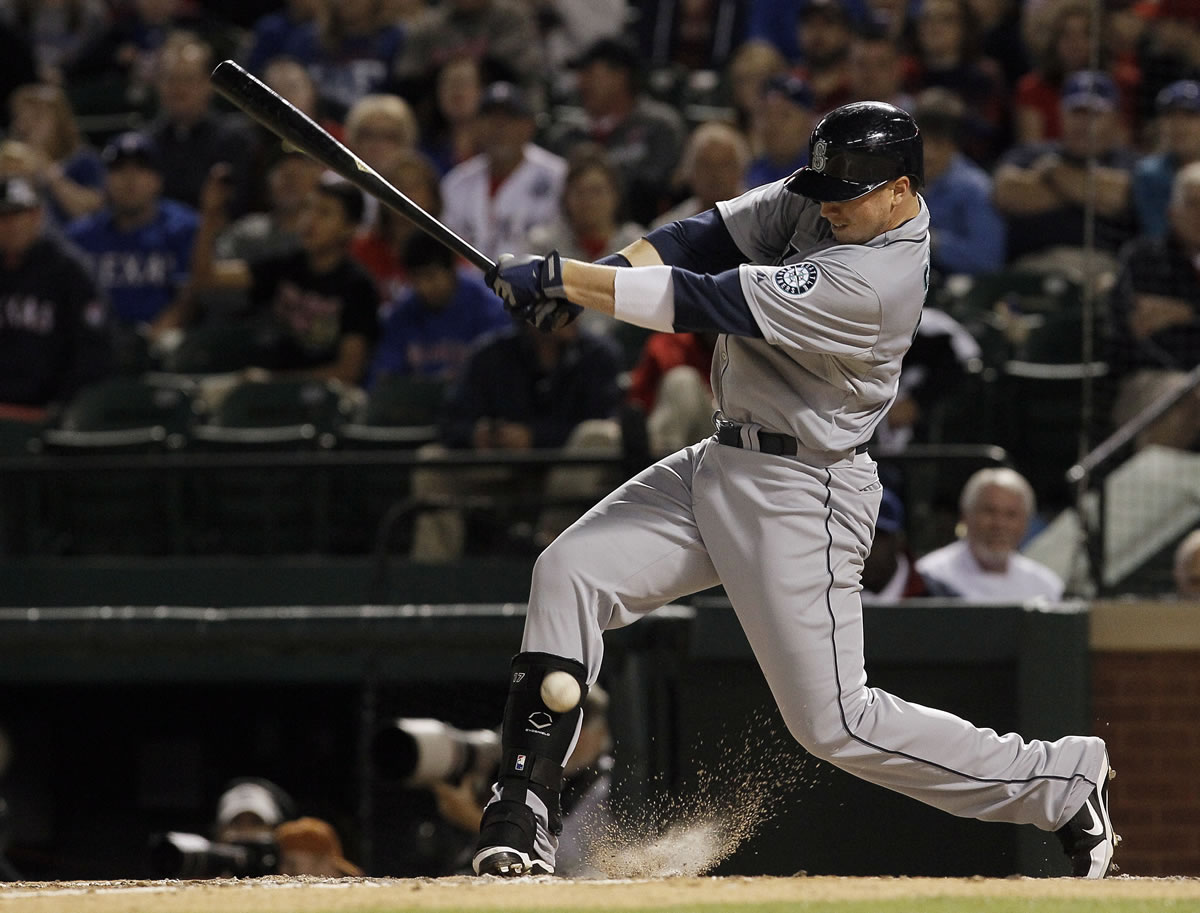Well, he’s not the worst-hitting first baseman in history. So at least he has that going for him.
But Justin Smoak isn’t far from that ignominious stature, despite the inexplicable insistence of the Mariners to play him every day. And that makes him the most prominent symbol of Seattle’s ineptitude over the past four seasons.
Let’s start with the most basic measurement. Smoak’s .223 career batting average is the lowest for any first baseman with at least 1,500 plate appearances in major-league history.
Most teams, you see, will not allow a .223 hitter to hang around first base long enough to get 1,500 plate appearances. But not our Mariners, who apparently are oblivious to impotent hitters; goodness knows, they’ve had enough of them in the lineup the past couple years.
So, with 1,500 plate appearances and counting, Smoak is a groundbreaker when it comes to batting average. But there’s a lot more to offense than that. Smoak has a little bit of power, and he walks once in a while, so he could be a decent offensive player. All he needs is about 60 more points on his batting average.
Now in his fourth major-league season, Smoak has produced 20 fewer runs than the average major-league hitter would over the same number of plate appearances. That’s the average hitter, not the average first baseman.
Good thing first base isn’t typically an offensive position, right? Oh … never mind.
Yet, he’s not the worst. Smoak has been better than Fritz Mollwitz, who batted .241 with one homer from 1913 to 1919. And Phil Todt, who was 105 runs below average from 1924 to 1931. And Mike Squires, whose lasting claim to fame is that he threw left-handed and appeared in major-league games both at catcher and at third base.
But if Todt was the Nickelback of first basemen, then Smoak is the Jonas Brothers. He’s close to the worst.
Consider this: Smoak’s career average/on-base/slugging is .223/.307/.371, with 57 runs and 67 RBI per 162 games. Last year’s first basemen throughout the major leagues batted .262/.336/.442 with 79 runs and 87 RBI per 162 games.
As a group, first basemen were the most productive hitters among any position in 2012. Except in Seattle, where Smoak was less productive than even the average major-league shortstop.
I know, I know. I’ve made my point. Justin Smoak isn’t a major-league hitter. But the situation warrants examination because it is so dumbfounding. Why in the world have the Mariners stuck with Smoak for nearly four years?
Sure, he once was a first-round draft pick, selected by Texas out of the University of South Carolina with the 11th pick in the 2008 draft. He reached the majors in 2010, and on July 9 of that year was traded to Seattle as part of the deal that sent Cliff Lee to the Rangers.
Therein lies the problem. Seattle traded Lee as one of those free-agent-to-be deals, one of those trades where a team tries to stock up on future stars in exchange for a current star.
It was the same kind of deal in which the Mariners picked up a young Randy Johnson years before. The same kind of deal in which they grabbed Freddy Garcia, John Halama, and Carlos Guillen years after that — in exchange for Johnson.
This time, they got Smoak as the centerpiece of a deal for an All-Star pitcher, and they have clung to him ever since as if they are desperate to prove something.
Yet all they have proved — over and over again — is that Smoak can’t hit major-league pitching.




